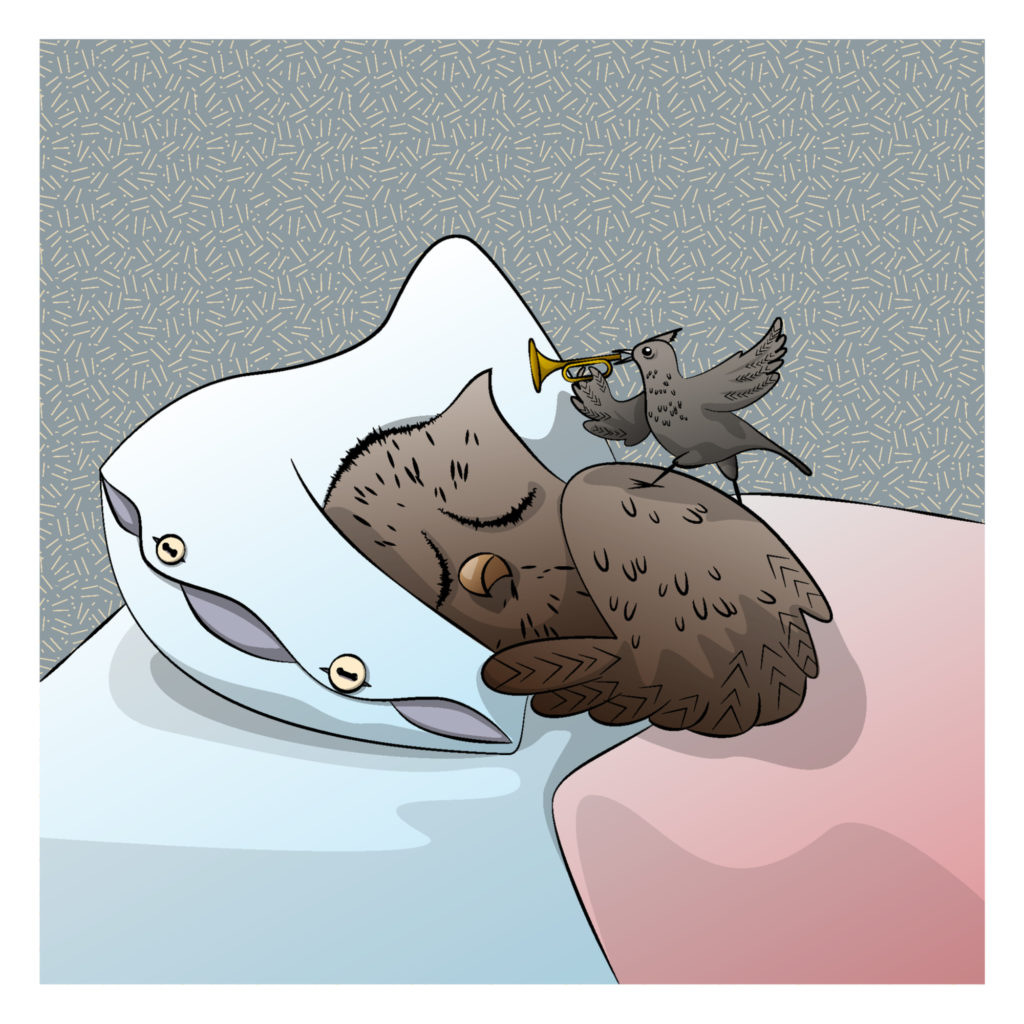What is your child’s chronotype?

- Chronotype describes the time of day when you feel most alert or energetic – whether you are a morning lark or a night owl or somewhere between the two, often referred to a “third bird”. If you prefer to go to bed early and wake early, you are a ‘morning type’ or ‘lark’. Or if a later bedtime and wake up time suits you better, you are an ‘evening type’, or ‘owl’.
- Your chronotype is inherited from your parents, genetically determined in the same way as your eye colour and your natural sleep rhythm is passed on to you through the PER3 gene.
- Larks make up roughly 40 per cent and owls 30 per cent of the population with the remainder coming somewhere in between.
Why do I need to know my child’s chronotype?
- Knowing your chronotype will help you sleep better, and plan your day knowing when you perform at your best.
- Larks tend to function well in the mornings, when owls are slowly coming round. Whereas owls come into their own come late in the day and evening times, when larks are ready to put their feet up.
- As well as knowing how much sleep your child needs, identifying their chronotype means you will be able to establish a sleep pattern for them in line with their natural body clock. Work out which chronotype best describes you and your partner and use this as a basis for your child’s bedtime and waking time. By working with your child’s natural body clock they are more likely to fall asleep faster, have more and better-quality sleep and wake less at night.
Larks
- A lark child is likely to need an earlier bedtime. Putting your lark to bed later usually means they will have less sleep that night, as they are still likely to wake at their typically early morning time.
Owls
- An owl child is likely to have a slightly later bed and wake-up times than their lark-like friend. It is particularly important for owls to have a regular set bedtime and, just as importantly, a fixed wake up time. If owls are put to bed late, they are more likely to wake later too. If this pattern is repeated, for example over school holidays, their body clock will shift into a later phase. Limiting light exposure in the evening and having a good dose of light in the morning will help keep an owl child’s body clock on track.


